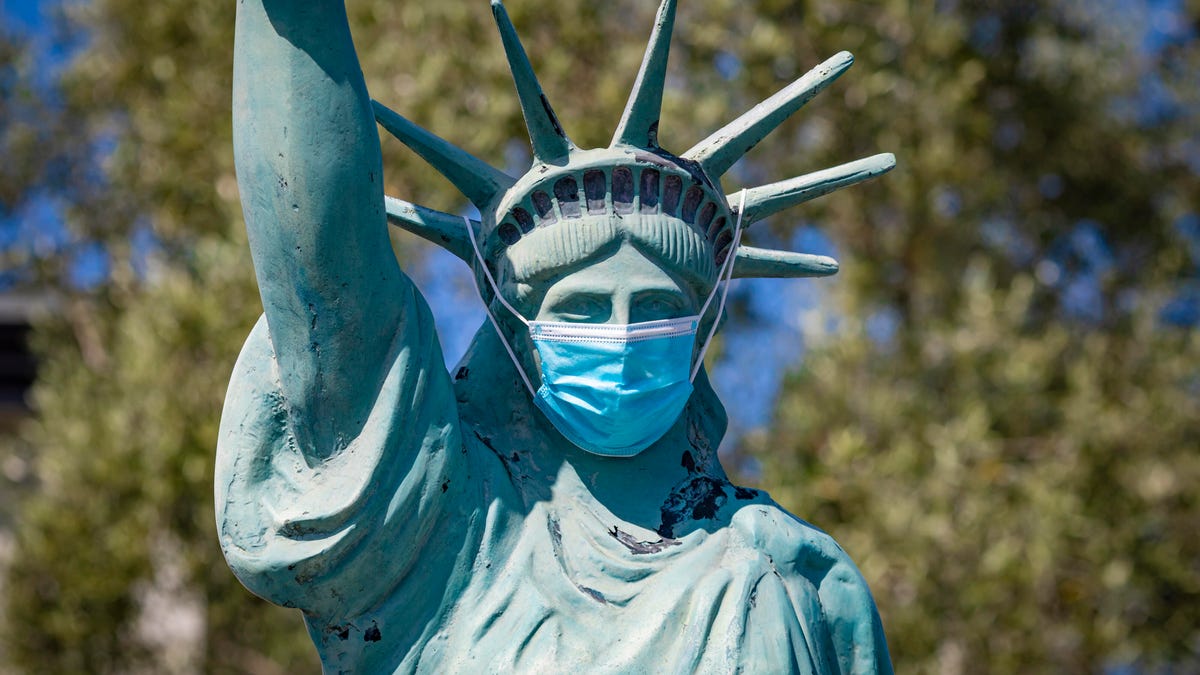Lawmakers want privacy protections included in coronavirus stimulus package
The bill would make it easier to trust contact tracing apps, according to a group of senators.

Lawmakers want legislation ensuring COVID-19 data privacy included with a stimulus package.
The erosion of digital privacy over the last two decades has caused a healthy sense of skepticism toward data collection -- but with the coronavirus pandemic, health officials need people to trust tech companies more than ever. Some lawmakers are arguing that a bill regulating COVID-19 health data can help with that, and want it included in a second stimulus package.
In a letter to Senate leaders on Tuesday, a group of 13 lawmakers requested the inclusion of the Public Health Emergency Privacy Act in the next coronavirus relief package, which is being negotiated by Congress. That relief package could inject $1 trillion in the US economy to help deal with financial pressures created by the pandemic.
The privacy bill, introduced in May, seeks to ensure that personal data collected for handling COVID-19 could only be used for public health services, and couldn't be abused by tech companies for other purposes.
The data could only be used by a government agency if it deals with public health, and would require data security standards so companies collecting that sensitive information would properly protect it. Tech companies involved in the public health crisis have asked for sensitive information including location data and biometrics.
Sen. Mark Warner, a Democrat from Virginia, and Sen. Richard Blumenthal, a Democrat from Connecticut, introduced the bill shortly before Apple and Google's exposure notification efforts went live on May 20.
"With research consistently showing that Americans are reluctant to adopt COVID screening and tracing apps due to privacy concerns, the lack of health privacy protections could significantly undermine efforts to contain this virus and begin to safely re-open – particularly with many screening tools requiring a critical mass in order to provide meaningful benefits," the letter, sent on Tuesday, said.
Several tech companies have proposed solutions to helping with the COVID-19 pandemic, many of which can be considered data privacy violations. Location data brokers have offered to track people's movements to help health officials understand the spread of the disease, while facial recognition and surveillance companies are using their cameras to detect masks and temperature levels.
Police have also used social media surveillance to arrest people who aren't abiding by local quarantine orders, adopting a service that artificial intelligence companies are offering local governments as well.
Companies like Google and Apple have said that their coronavirus tech tools would only be used for dealing with the disease, but without regulations mandating it, the public has remained skeptical.
Coronavirus updates
The skepticism comes from a frayed relationship with tech giants, who have lost public trust after spending years exploiting people's personal information. You use an app to find out the weather, and it turns out the weather app was giving your location data to advertisers.
There are no federal laws on data privacy, and health privacy laws like the Health Insurance Portability and Accountability Act, or HIPAA, don't cover tech companies' efforts against COVID-19.
Data protection agencies around the world have also been loosening privacy standards during the pandemic, arguing that saving lives is more important than privacy in a public health crisis.
Many of the technology services rolled out to help health officials during the pandemic are opt-in, but without public trust, it's unlikely that a majority of people will be signing up. Lawmakers are hoping that the legislation will create that trust.
"Providing Americans with assurance that their sensitive health data will not be misused will give Americans more confidence to participate in COVID screening efforts, strengthening our common mission in containing and eradicating COVID-19," the letter says.
Along with Warner and Blumenthal, Democratic Sens. Elizabeth Warren and Ed Markey (both of Massachusetts), Kamala Harris (California), Amy Klobuchar (Minnesota), Corey Booker (New Jersey) and six other senators signed the letter.
See also: Stimulus check: Are you eligible to get the next $1,200? What you need to know

